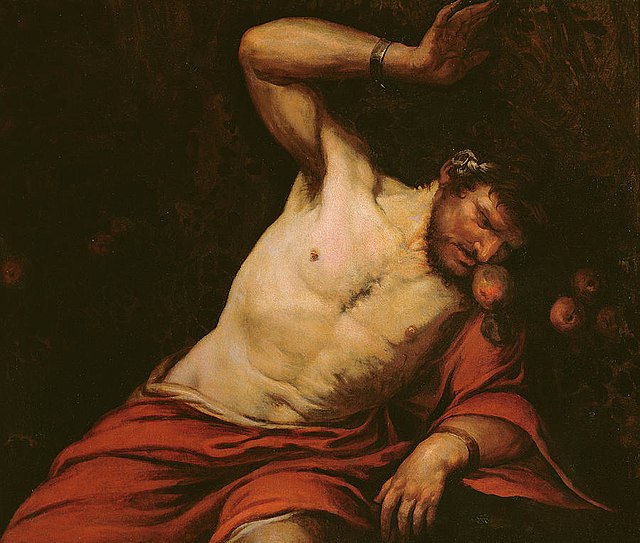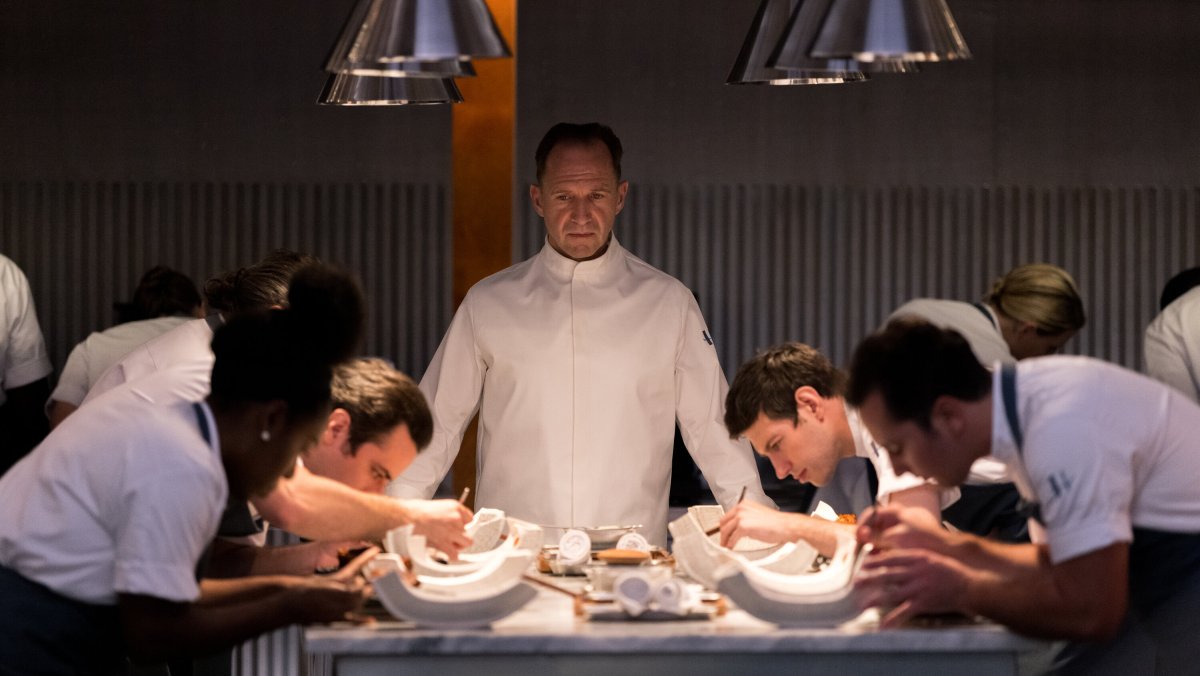Clever dark comedy The Menu has only been out for a few weeks and fans of the movie are already doing what fans do best: microanalysis and deep dives looking for Easter eggs and hidden meanings more casual viewers might have missed. One fan may have struck gold, however, when he picked up on the Greek mythology reference in the name of Chef Slowick’s former restaurant, Tantalus.
Who is Tantalus?
Fan and film critic Devin, who runs the Life of Devint channels on TikTok and Youtube, caught the reference during a scene where Margot looks at a series of photographs in Chef Slowick’s (Ralph Fiennes) house after the movie’s big, horrifying reveal has already taken place. Tantalus, as Devin explains in his Tiktok, was a demigod from Greek myth—one of the many results of Zeus being unable to keep it in his pants.
Like a lot of demigods, especially the ones who exist as cautionary tales, Tantalus was both arrogant and cheerfully monstrous. As a result of his various crimes, which included killing and cooking his own son before feeding him to the gods, just to test their omniscience, he was sentenced to an eternity of hunger and thirst in the underworld. Not just to be denied food and drink, however, Tantalus’ punishment was to be surrounded by them as he suffered, standing in a pool of water that receded if he stooped to drink and with food placed nearby that was forever just out of reach.
An inversion of the original myth

Bringing in the myth of Tantalus is a pretty clever literary motif on the writer’s part, and not just because, as Devin points out, there’s a thematic connection between his punishment and Slowick’s inability to connect with the food that surrounds him.
Slowick inflicts Tantalus’ crimes, or near enough, onto the “gods”—the super-rich who commodify and toy with people as easily as the Olympians—as punishment for robbing him of his vocation and placing food eternally out of his reach. It’s an inversion of the original myth—the crime as punishment, the punishment preceding the crime, the power dynamic suddenly reversed—in a way that suits our hyper-capitalist nightmare society. Instead of saying don’t anger the gods or test your betters for fear of a horrific punishment, the film is a warning to the powerful about the consequences of their dehumanization of the people they exploit.
While you might dismiss the connection, since Tantalus’ story is about how you shouldn’t eat the rich, given his victim is a prince, both stories are about the literal or metaphorical consumption of those vulnerable to people with great wealth and power, and the heavy, symbolically appropriate punishment doled out in response.
Slowick’s not a god, despite the cult-like devotion of his followers, but he fits perfectly into the folkloric tradition of figures constructed to serve as checks and balances on the wealthy and curb their worst excesses. Tantalus was there to tell us don’t provoke the gods by committing atrocities; Slowick warns us not to abuse or exploit just because we have the power to—or else you might just end up on The Menu.
(image: Searchlight Pictures)










Published: Jan 19, 2023 05:45 pm